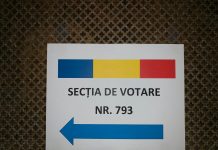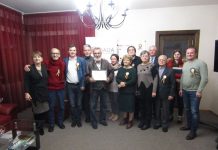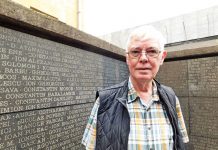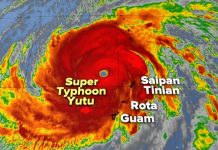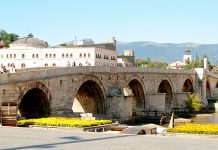Then I went to the seaside for a few days at the beach. While I was gone, a letter came from a Romanian family from Orange County, California. They had heard our letter read in church, were very much impressed by our resourcefulness and decided to sponsor us. So, now we had sponsors. Before we left Romania, the Romanian head of the family came to Romania to visit relatives and also asked to meet us. Because he was not from the capital but from a city in western Romania, he asked us to meet him there. Only my mother went because the ticket to go there was expensive.
I returned to Bucharest right away and ran to the Passport Office to request that our destination be changed back to the U.S.A. The officials were very cross and scolded us for making a mockery out of the immigration process. But they filed our request. We were rather afraid that out of spite, the officials would send us to Egypt. After a few months, a letter came by which we were informed: “Your request to change destinations and go to Egypt instead of the U.S.A. has been denied.” Big sigh of relief!! That’s what we wanted. That was a request we wanted denied.
Shortly after, we were called to pick up our passports. But, in the meantime, we had heard that the American Embassy had a long waiting list for immigrants. Months and months of waiting. And I suspect that the Romanian authorities knew of our predicament. At this point, they were acting like: See, we are good, we let you go, but the Americans are not in a hurry to accept you. At that point, we were not in such a hurry to get our passports because that meant that we had to give up our jobs, our citizenship, our ID cards. Fortunately, shelter and food were not a problem because we lived with my mother’s parents. Her father was a Hungarian national who kept his Hungarian citizenship until the end of his life although he lived for more than 60 years in Romania. My grandfather had a very large house, which he had bought before communism took over. It was centrally located and attracted a lot of interest from potential tenants. He did, indeed, have tenants. Due to his foreign citizenship, he had certain advantages. And my mother and I did too because we lived rent-free.
In fact, we later found out that my grandfa ther had repeatedly petitioned the Romanian authorities to keep us in Romania rather than let us go. His point was that we would inherit the house and have a good income. He saw no further than that.
Anyway, we were told that we had to pick up our passports if we wanted them. We were warned that if we didn’t, we might not get another chance later. So, we had to proceed. To get the passport, we had to pay a hefty sum for “renouncing the citizenship”. We had to pay to be stripped of our citizenship. We also had to present signatures from dozens of places. We had to demonstrate that we didn’t owe money or anything to any organization. That we didn’t have any important works of art that belonged to the Romanian people. And on, and on, and on. The most important thing was that once you picked your passport, you had to give up your job. At the same time, we had to pay the Passport office every month or so for the exit visa to be extended. If you didn’t pay, your visa was voided. We tried to obtain some employment by going to the Work Forces office. This was something somewhat similar to the Unemployment office. However, under communism, virtually everybody had some kind of state given job. The Work Forces office was another office that was created just to keep people employed. There were no real jobs to be assigned from this office. We were prepared to accept any kind of employment although I held a degree in English and my mother was a pharmacist. But, first of all we were asked to present our ID cards. Of course, we had given those up (had to) to get our passports. So, the answer was: “No ID’s, no work.”.
Finally, the American Embassy scheduled our departure for February 21, 1983. During that time, my mother’s mother was in the last stage of colon cancer. We wanted to stay with her until the end, which was near. However, this time we got an ultimatum from the Americans. We either departed when we were scheduled or we might never be granted the opportunity. So we decided to go.
We had to pack. 9 huge suitcases + our dog. We had to make a list with everything we were taking, down to the smallest pair of panties. Then, everything had to be inspected and then directly shipped to Italy. The immigration was either through Italy or through Austria. We had been assigned to go through Italy. We had to be in Rome at a certain American run boarding house by February 22. Although Romanians were not supposed to have foreign currency, now we were considered non-Romanians and as such, we had to pay in dollars. We were supposed to pay a high shipping fee for our luggage to be sent to Italy. We decided to carry our entire luggage with us to save on the shipping costs. We were warned that this was against the law and that we were not supposed to carry any of our luggage with us once it had been inspected. That is for fear that we might take something valuable out of Romania. But, we decided to take the chance. We were told that all of our luggage might be confiscated at the border. We replied that if the customs people would dare to do that, we would open the windows and throw all of our possessions out to create an unforgettable scene. To save even further, we had decided to take the train to Rome rather than fly. The trip entailed changing the train and the train station in Belgrade. And that while we had 9 suitcases and a dog.
(to be continued)






